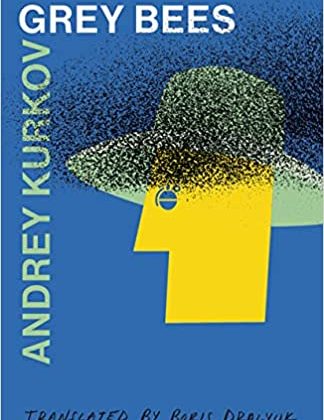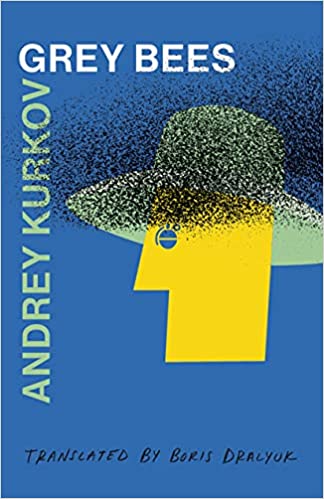

The events of this past weekend had a number of Cold War and Russian history and politics experts excitedly feeling relevant. What exactly happened and what does it mean? I appreciated this analysis from Tom Nichols at The Atlantic. In a nutshell, the very short yet terrifying coup spells bad news for all parties involved, even as the attack seems to have ended without the massive bloodletting that so many rightly feared might happen. As a military historian of the Greco-Roman world, I am also thinking about the issues involved in using mercenaries and would like to see more coverage of this part of the story.
Before this weekend’s events, Current had already scheduled Jeff Bilbro’s insightful review of Eugene Vodolazkin’s A History of the Island to run today. What none of us, including (I presume) Jeff had expected was for his review to end up being a current events report, rather than a review of a novel–a work of fiction. But I suspect Vodolazkin would find the timing humorous. Indeed, this novel is a reminder that the boundary between fiction and non-fiction is remarkably porous. I find all of Vodolazkin’s novels, and especially this latest one, to be wonderful commentaries on contemporary Russia and on the history that led to what we see right now, including the invasion of Ukraine and this weekend’s bizarre attempt at a coup.
If you like to get your historical commentary sometimes/always from novels, here is a short and somewhat eclectic reading list of other excellent fiction in the same vein:
Andrey Kurkov, Grey Bees
A novel about the 2014 Russian invasion of Ukraine, it centers on a man who has lived his entire life in a small village. His village, however, turns out to be in the “grey zone,” belonging neither to Russia nor Ukraine. Shelled by both sides (because why not?), the village is gradually abandoned by all previous inhabitants, until only our protagonist, Sergeich, and one other man are the only ones left there.
Sergeich is a beekeeper, and we see his concerns about his bees. At one point in the novel, he movingly muses how bees just don’t understand war. All they want is to fly around freely, and do what they were created to do—make honey! Beautiful reflections like this one are scattered throughout the novel and offer a poignant reminder of the war’s pointlessness yet the real nature of the destruction it brings about.
Kurkov is a journalist as well as a novelist, and he published a collection of columns from the first year of the current invasion, Diary of an Invasion. I look forward to the novelist Amanda McCrina’s review of it later this summer for Current.
Lyudmila Petrushevskaya, Kidnapped: A Story in Crimes and The New Adventures of Helen
Before I discovered Vodolazkin, I considered Petrushevskaya to be my absolute favorite contemporary Russian writer. Now it’s probably a tie between the two. Like Vodolazkin, she has spent her adult life in St. Petersburg, my own city of birth. Petrushevskaya is different from Vodolazkin, though. I would describe the stories she tells as less hopeful than Vodolazkin’s, darker somehow. Kidnapped, Petrushevskaya’s latest, is a novel that showcases contemporary Russian corruption through the intersecting stories of two babies—they are the kidnapped ones in the title. The New Adventures of Helen is an earlier work, and I first read it in college. It is simply beautiful. No other words for her writing style and the exquisite way she brings together Greco-Roman mythology and Slavic folklore to tell stories that are set in the modern world, yet reflect historical currents that have shaped Russia over the past century.
Alhierd Bacharevič, Alindarka’s Children
This Belorusian novel, published a year ago, has received significant critical acclaim, and a review is forthcoming in Current soon as well. I have not read this one yet, but it is on my list. Similarly to Petrushevskaya’s style, this is a folk tale of sorts, but a much darker fairytale with that old and terrifying recognizable motif of a brother and sister who get lost in the woods. Nothing good ever comes of it—much like the history of those who had been taken over by Russia.
Amanda McCrina, Traitor, Silent Unseen, and I’ll Tell You No Lies
Amanda is a novelist, and her historical fiction centers on Ukraine, Poland, and Russia in the period of WWII and (in her latest book) the Cold War. While her books are advertised as YA (and therefore appropriate for your middle school and high school readers), I have appreciated them myself, not the least because of the incredible depth of research that Amanda puts into her writing. She is by academic training a historian, but she has chosen to present her research in this format. You can read the interview with her on this blog earlier this year, and find out what her next novel will be about. You can also read two essays she has written about the history of Ukraine and Poland for Current: A Story in Two Parts and History Brought Us Here.